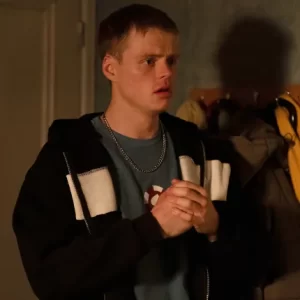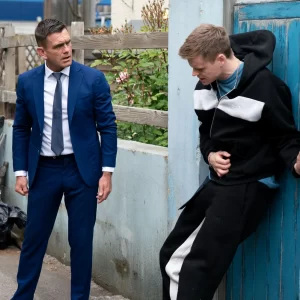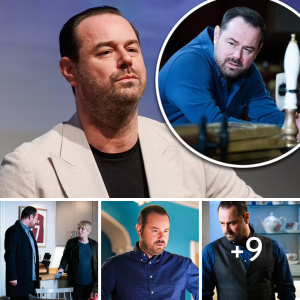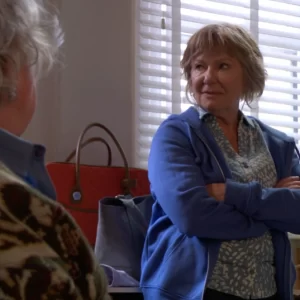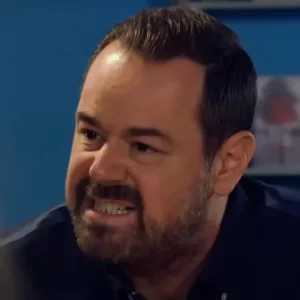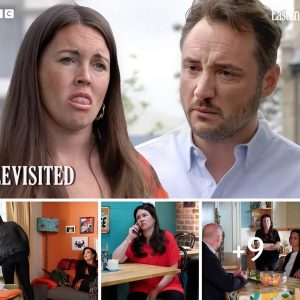Essex-born actor and TV presenter Ross Kemp has made more than 135 documentaries, including many in some of the most dangerous places on Earth.
He filmed in Helmand Province, Afghanistan in 2007 and 2008, for example, following troops deployed there by the UK government.
Two years later, he had PTSD, for which he self-medicated. He was drinking too much, and it took a toll on his social life.
Kemp – who now fronts game show Bridge of Lies – has since spoken openly about his reliance on alcohol as a coping mechanism, and the tools he and his team used to minimise the long-term impact of traumatic events.
He has also spoken out against the stereotypes people have about veterans.
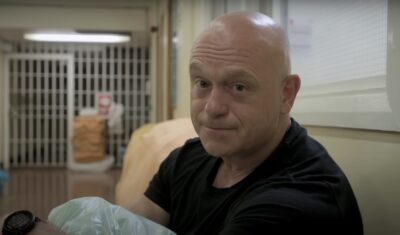
Ross Kemp on ‘drinking way too much’ as coping mechanism for PTSD
Midway through his on-again, off-again time in Afghanistan, documenting life from the frontlines, Ross Kemp admitted to suffering from bouts of post-traumatic stress disorder, often abbreviated to PTSD.
The years 2009 and 2010 were “particularly bad”, he told Nikki Bedi on her BBC Radio 4 show in November 2023.
“I was drinking way too much. Definitely. I’ve been able to moderate that. I still like the occasional glass of pinot noir. But I did find solace in it, and use it as a screen to hide away, particularly in social situations.
“I’d find myself literally in the corner, holding up a glass as a sort of defensive shield. That’s not going to help you long-term and everyone knows that. But at the time you can’t see that,” he said.
He went on to talk about Trauma Risk Management, or TRiM. It’s a technique for reducing the potentiality for PTSD further down the line. Ross and his team would use it while shooting their documentaries in Afghanistan.
In a nutshell, at the end of a particularly gruelling day, the team would sit round a table and narrate the events of the day to each other.
By doing so, they would establish exactly what happened, so that no one had a false impression of it. And they would talk about the normal range of reactions to it.
The idea is that it happens very soon after the potentially traumatic incident. Everyone touches base and takes note of how it has affected other people. And the potential for private suffering is reduced.
When asked Ross Kemp about his PTSD during an interview in September 2024, he shrugged and said he doesn’t really suffer from it any more.

Former EastEnders star speaks out against stereotypes of UK military veterans
In 2022, Ross Kemp went on record to say he wants portrayals of serving and former soldiers to reflect their contributions to society, rather than the mental health struggles they have as a result of their work.
Stereotypes have a negative impact on people that have served their country, he said.
“They’re brave enough to come forward and admit they’ve got an issue, which is often very difficult for people.
“Drama needs drama, obviously, otherwise it’s not interesting. But there seems to be a continuous portrayal of service personnel with mental health issues that often result in negative outcomes.”
For that reason, he was backing a campaign by military charity Help for Heroes to change the portrayal of veterans on screen.
“As soon as you see PTSD, there is an image that is forming in your head automatically of somebody that hides under the bed or camouflages up at night, and that is not the truth – that is an image that has been perpetuated in dramas.”

Ross ‘clearly failed’ to realise his acting ambitions
During his interview, Ross reflected on his departure from EastEnders. He played Grant Mitchell from 1990 to 1999, and was a stalwart of the long-running soap opera.
When ITV offered him a deal worth £1.2 million to star in prestige dramas, he snapped it up.
And yet here he is, more than two decades later, making documentaries about the world’s roughest situations.
Hardly a step down, though he joked that it was. “I clearly failed. Because I’m doing these documentaries now.”
